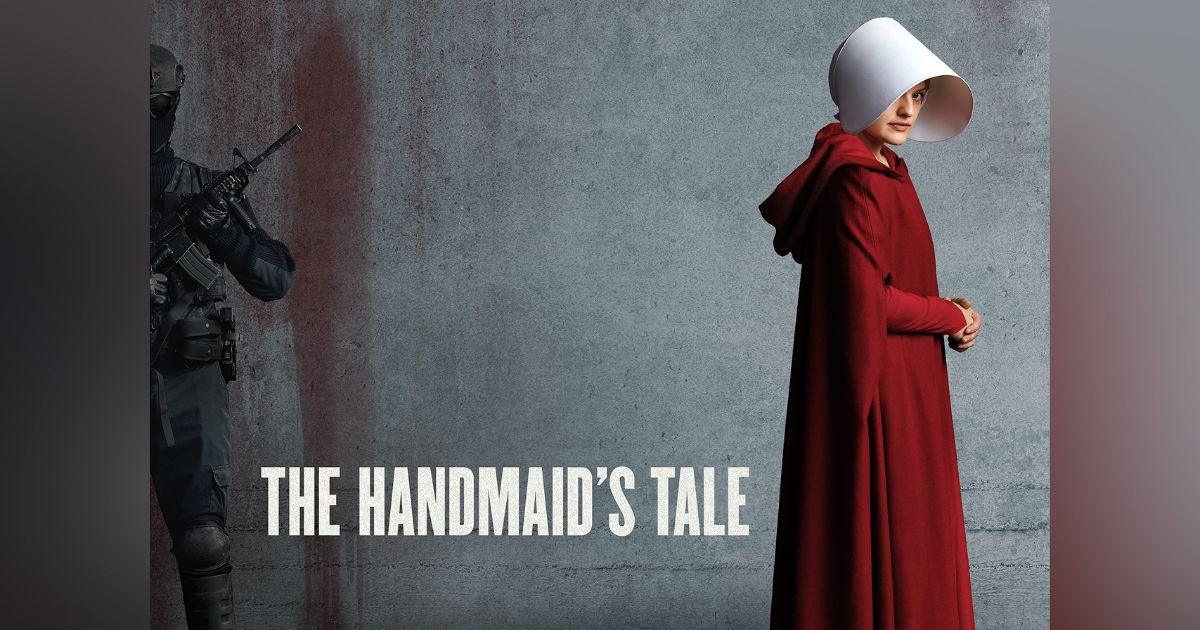Ever wondered what it would feel like to live in a world where your choices aren’t yours anymore? That’s the haunting reality The Handmaid’s Tale throws us into. Whether you’re a seasoned fan or just curious about the buzz, this article will take you on a deep dive into one of television’s most powerful and thought-provoking series. Buckle up—it’s going to be a gripping ride.
Introduction to The Handmaid’s Tale
Imagine waking up one day and realizing your world is no longer yours. That’s exactly the chilling premise The Handmaid’s Tale presents. Based on Margaret Atwood’s iconic 1985 novel, the series first aired in 2017 and has since sparked global conversation. It’s a story that doesn’t just entertain—it makes you think, question, and sometimes even shudder.
What Is The Handmaid’s Tale About?
At its core, The Handmaid’s Tale is a story about control, resistance, and survival. Set in a future America transformed into a theocratic regime called Gilead, the show follows June Osborne, a woman forced into servitude as a “Handmaid”—a role where women are stripped of all rights and used solely for reproduction.
Think of Gilead like a dark mirror—reflecting real-world fears and amplifying them into a chilling, dystopian vision.
Key Themes in the Series
The show doesn’t hold back when it comes to heavy themes. Here are some it tackles:
- Loss of personal freedom
- Religious extremism
- Fertility and reproductive rights
- Power and resistance
- Feminism and gender roles
It’s like peeling back the layers of a societal onion—every episode reveals a little more of what lies beneath the surface.
The Setting: A Dystopian Nightmare
Gilead is a version of the United States gone horribly wrong. Environmental disasters and a fertility crisis have led to a religious military takeover. In this world, everyone has a role—and deviation is met with brutal punishment.
The visuals are stark, with red robes and white bonnets becoming symbols of submission and resistance. The setting itself becomes a character—cold, calculating, and hauntingly quiet.
Cast and Characters
This show wouldn’t be the same without its powerhouse cast. Each actor brings depth and intensity to their role, making Gilead feel all too real.
- Elisabeth Moss as June Osborne
- Joseph Fiennes as Commander Fred Waterford
- Yvonne Strahovski as Serena Joy Waterford
- Ann Dowd as Aunt Lydia
- Samira Wiley as Moira
- Alexis Bledel as Emily
Every character is complex—there are no easy heroes or villains here.
Main Character Deep Dive: June Osborne
June isn’t just the protagonist—she’s the heart and soul of the story. Played by the brilliant Elisabeth Moss, June transforms from a submissive Handmaid into a fierce rebel leader. Her journey is messy, raw, and real.
Through her eyes, we experience the pain of separation, the fire of rebellion, and the struggle to stay human in an inhuman world.
Supporting Characters That Shine
Even the side characters get the spotlight in this series:
- Serena Joy: Torn between power and motherhood.
- Aunt Lydia: A chilling enforcer with moments of unsettling empathy.
- Nick Blaine: Mysterious and emotionally entangled with June.
- Moira and Emily: Represent hope, survival, and the consequences of escape.
Each subplot adds texture, like individual brushstrokes in a painting you can’t stop staring at.
Genre: Dystopian Drama at Its Finest
The Handmaid’s Tale blends drama, thriller, and sci-fi into something uniquely its own. If you enjoy shows that leave you questioning the world around you, this is a must-watch.
It’s not all doom and gloom, though—the series finds moments of light and even humor in the darkest places. That balance makes it all the more powerful.
Release Date and Seasons Overview
The show premiered on April 26, 2017, on Hulu. Since then, it’s released five intense seasons, with a sixth and final season confirmed to be in the works.
Each season adds new layers to the story. The slow burn of resistance builds to explosive moments that will leave you breathless.
Behind the Camera: Director & Producer
The creative minds behind the show include:
- Bruce Miller – Creator and Showrunner
- Reed Morano – Directed several key episodes
- Warren Littlefield – Executive Producer
- Elisabeth Moss – Also a Producer
With Margaret Atwood’s blessing and occasional consultation, the show stays true to the novel’s themes while expanding its world.
Budget and Production Quality
High production values are one of the series’ strengths. Each episode is like a mini-film—cinematic shots, stunning costume design, and detailed sets that immerse you in Gilead.
The estimated budget per episode is around $10 million, a testament to Hulu’s investment in telling this story right.
Awards and Critical Acclaim
Let’s just say The Handmaid’s Tale hasn’t gone unnoticed:
- Emmy Awards: Winner of Outstanding Drama Series (2017)
- Golden Globes: Best Actress for Elisabeth Moss
- Peabody Award: For excellence in storytelling
The show has consistently been praised for its bold storytelling, acting, and cultural relevance.
Cultural Impact and Social Commentary
This series didn’t just entertain—it sparked a movement. Women have marched in red robes and white bonnets at protests. Terms like “Gilead” and “Under His Eye” have entered public discourse.
It’s rare for a show to blur the lines between fiction and reality, but The Handmaid’s Tale does just that—holding a mirror up to society and asking, What if this really happened?
Is There More to Come?
Yes! A final sixth season is in development. Plus, there’s talk of a spinoff series based on Atwood’s sequel novel, The Testaments.
Fans can rest assured—the story isn’t over yet.
Conclusion and Final Thoughts
The Handmaid’s Tale isn’t just a TV show—it’s a wake-up call, a chilling warning, and an emotional rollercoaster all in one. With unforgettable characters, jaw-dropping storytelling, and a world that feels too close for comfort, it’s no surprise the series has become a cultural phenomenon.
Whether you’re watching for the drama, the commentary, or simply to see what happens next, one thing’s for sure: The Handmaid’s Tale will stay with you long after the credits roll.
Also Read : Pamela Anderson – Age, Height, Family, Career, TV Shows, Awards, Net Worth
FAQs
1. Is The Handmaid’s Tale based on a true story?
No, it’s based on Margaret Atwood’s 1985 novel. While fictional, it draws on real-world historical and contemporary events.
2. Where can I watch The Handmaid’s Tale?
You can stream it on Hulu in the U.S., and it’s available internationally on platforms like Amazon Prime or HBO Max depending on your location.
3. How many seasons of The Handmaid’s Tale are there?
There are currently five seasons, with a sixth and final season in development.
4. Is there a sequel to The Handmaid’s Tale?
Yes, Margaret Atwood wrote a sequel novel titled The Testaments, which is also being developed for television.
5. What makes The Handmaid’s Tale so impactful?
Its chilling reflection of societal issues, powerful performances, and emotional storytelling make it both entertaining and deeply thought-provoking.
Join our WhatsApp channel for more updates and information about celebrities and entertainment.

I’m Atul Kumar, founder of Cine Storytellers and an entertainment creator with 5+ years of experience. I cover films, celebrities, music, and OTT content with a focus on accurate, ethical, and engaging storytelling. My goal is to bring readers trustworthy entertainment news that informs, inspires, and goes beyond gossip.
Discover more from Cine Storytellers
Subscribe to get the latest posts sent to your email.
